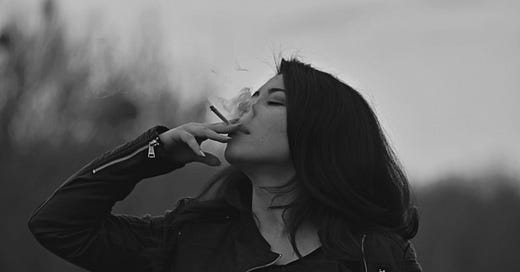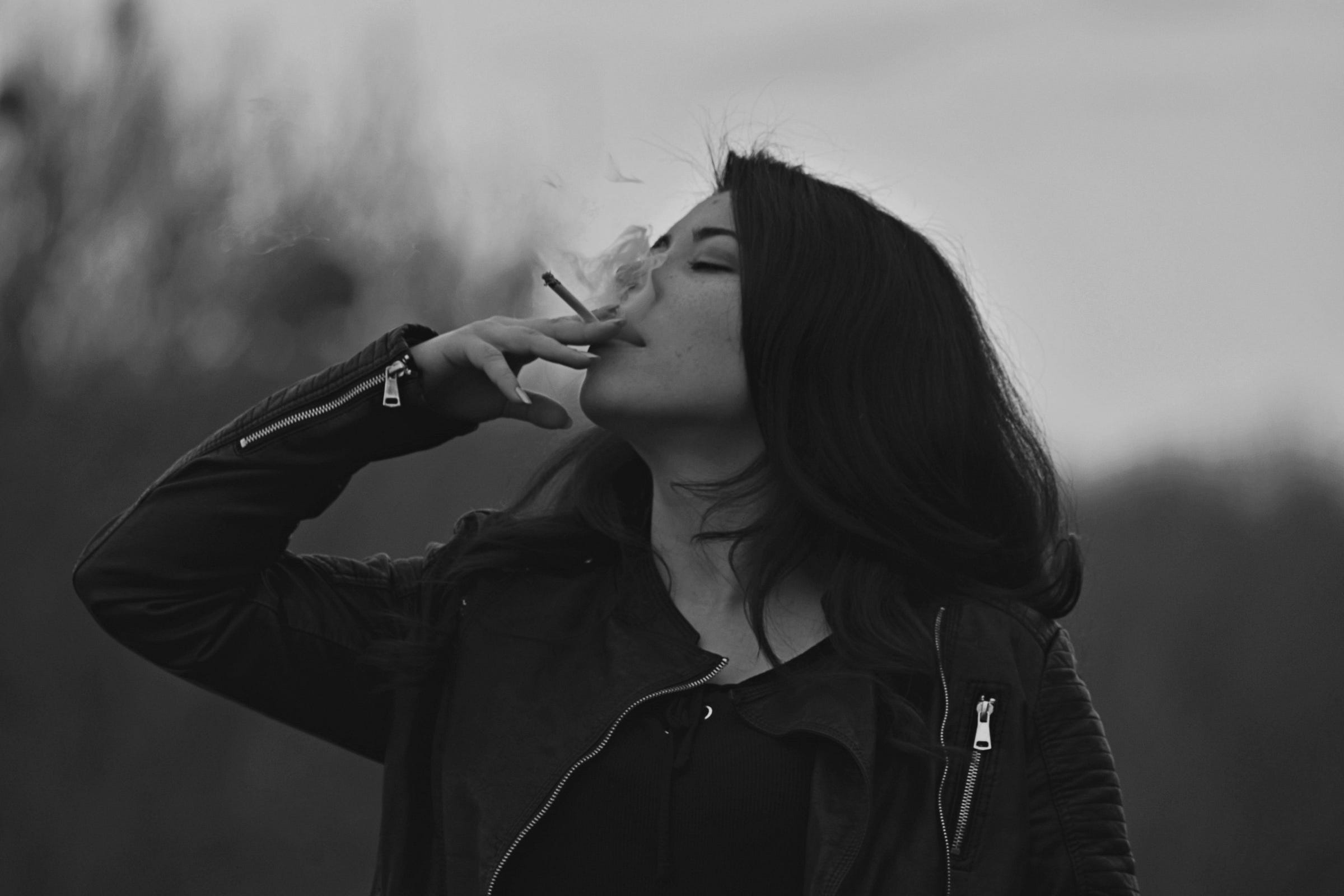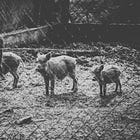‘If children were brought into the world by an act of pure reason alone, would the human race continue to exist? Would not a man rather have so much sympathy with the coming generation as to spare it the burden of existence, or at any rate not take it upon himself to impose that burden upon it in cold blood?’
— Arthur Schopenhauer
Ultimately, we all face death.
It closes in from both sides — pre-birth non-existence, post-life eternity — its concrete character determined by subjective, alterable belief systems. We are caught in a tunnel called existence with trains rapidly converging from both ends, erelong meeting at some yet-to-be-determined point along the darkness. It’s the place where our universes collapse. Glaring neon headlights illuminate the area.
We have all been angry, perhaps furious, with our parents at certain points in our lives. It’s inevitable. Take things too far, however, and some Samaritan will offer the unsolicited advice that ‘one should be thankful and respectful toward one’s parents’ because, after all, they brought one into this world.’ This, of course, presupposes that existence is something inherently positive and that non-existence or death are to be feared and avoided at all costs. It must altogether be a horrid affair, not-living that is, if our collective minds place such detailed emphasis on avoiding the unrelenting, ever-present call of this our shared void. Reflected lives, indeed, revolve around this Camusean conflict between rationality and the knowledge that nothing we do is rational. Consciousness, perhaps, will yet prove a great evolutionary failure.
The notion that bringing children into this world, preferably as many as possible, and furthering the conquest of humankind is something we should all strive to do is quickly growing outdated in the face of the sheer suffering and pain generally involved in living. Not to venture too far into the dark, but, let us be honest, life, all in all, is not a particularly pleasant affair for most humans for most of the time, and having children not the selfless, self-sacrificing act we make it out to be.
People have children for selfish purposes, be it free labor, biological drive, or some sort of ‘fulfillment’ posturing as substitute for purpose. This is not a bad thing necessarily; we should just call it what it is and be honest with ourselves. I’m still on the fence about children, personally, but I can identify with the desire to have a sort of copy of oneself, a new person, a new life, a friend, someone to love, someone to protect. But it is selfish, yes, and that person, just like you and me, will suffer and experience pain, lots of it, make some of it their own, and work their entire life for nothing, witnessing a collapsing capitalist world.
I for one reject the notion of eternal gratitude to our ‘life-givers’ and instead choose to judge them on the same criteria I judge other persons. There is, naturally, still that notion of duty in staying in contact, difficult to shake no matter how abusive a relationship, but that is born more of the deep love and unconditional affection one feels as a child, a remnant so to speak, and less out of some quasi-religious, Puritan reverence toward the ones that ‘made’ you.
Anti-natalism is the idea that, to a large degree, life equals suffering, death is inevitable anyway, and all of us are born without our consent, often at the mercy of abusive or outright hateful parents who wield almost unconstrained power over us and the shape of our brief existences. Having children, anti-natalists argue, is a terrible thing to do, particularly considering our current capitalist-dystopian plight. Why doom anyone to purposeless toil and pain? Why make anyone witness the end of the last functioning ecosystem, the demise of the last tree, the last bird, the last mammal?
Some do turn out generally happy and content, sure — we all know such people — but, ultimately, to have children is to gamble with the fate of an entire person. Brain chemistry, adherence to strict social norms, intelligence, empathy, physical appearance, philosophy, morality, sexuality, and, most of all, external factors — all things outside control; all things that can make or break a life.
Anti-natalism is a rising current, sweeping up younger generations who increasingly reject the notion of having children for the sake of having children, and bringing life into an overpopulated, overconsuming world. It is no coincidence that birth rates are plummeting around the globe:
While ‘true’ anti-natalists oppose all births, no matter the circumstances (to quote the South African philosopher David Benatar, who coined the term anti-natalism: “The quality of even the best lives is very bad — and considerably worse than most people recognize it to be”), the philosophy can be abused, too, often inciting certain prototypes to judgements on who, and under what circumstances, should or should not have children (this, in their minds, has often to do with skin colors and other superficial attributes — as always, one should punch such people in the face).
There is a vast gulf between ameliorating suffering through activism (or attempting to do so, at least) and accepting that suffering is inherent to life, no matter the quality of that life. Declining birth rates are a good thing; their only negative effect, which is coincidentally the only meaningful one in this system, is on capitalist growth and disembodied corporate greed. The less of us the better, no matter where in the world. Let all that pavement slowly and benevolently rot away, let plants and animals breathe again.
Taken to its logical conclusion, anti-natalism signifies the total extinction of human life. While I’m far from philosophically mature enough to give a meaningful opinion on that matter, I’d still like to point out that life is not only suffering and pain, but that beauty and love are inherent too; that no matter the hardships and all the evil we impose upon one another, one can find those sparks of joy in every corner and niche, under every rock, in every cranny. Most of life is unpleasant, yes, but not all. It is meaningless, but that should not stop you (a decidedly Camusean statement). Almost always there remains something good, and that can, on occasion, be worth all the trouble (this is my current belief, subject to constant change and adaptation).
And when it doesn’t — when all you feel is dark, constant and unfaltering — I do not think the void terrible. I find it comforting, the great equalizer, peaceful. Such an opinion, as Thomas Ligotti (whose book The Conspiracy Against the Human Race is a masterpiece of readable philosophical pessimism) points out, can never be socially acceptable, for society rests on certain unshakeable beliefs such as the sanctity of life, eternal growth, materiality, having children is good, and so on. To question such things is to be an ideological outcast whose opinions are not worth taking seriously, for ‘he is just depressed.’
Eight billion is too much. Way too much. As an advocate for almost limitless personal freedom, I cannot condone telling others, anyone, what to do and what not to do, but the fact that we are a terrible thing for this world and all else that inhabits it is unshakeable. Should this stop you from living your life, enjoying material comforts, having children if it brings you joy, whatever?
How the hell should I know?
If you want to support my work and gain access to the full archive, you can do so by subscribing here on Substack:
You can also support my pursuit of freedom on Patreon (starting at $2 a month) or leave a tip on PayPal. Capitalist means to escape capitalism, sure. What else is there?
Anyway, thank you so much for reading.
If you liked this essay, check out more of my ‘darker’ stuff:











If you ever encounter me at a party, please do approach. As you can probably imagine, bringing up such things in conversation rarely makes one the "life of the party," and these are exactly the kinds of topics that have earned me a bit of a reputation as a buzzkill lol. Don't get me wrong, I do remember how to let go and just enjoy the moment, but I have indeed said something to the effect of "children can't give their consent to be born into this terrible world and it strikes me as cruel to do so on purpose" at what was probably, in hindsight, an inappropriate situation lol. I will blame it on being a painfully blunt autistic person, which is why I often hang out with the family dog at parties.
I had myself sterilized when I was 23. I decided even a decade before that I would not be bringing children into this world. I love spending time with my nieces and nephews now, and can try to pass on any info or knowledge they may want in the future. For now I’ll just keep rescuing cats and dogs!